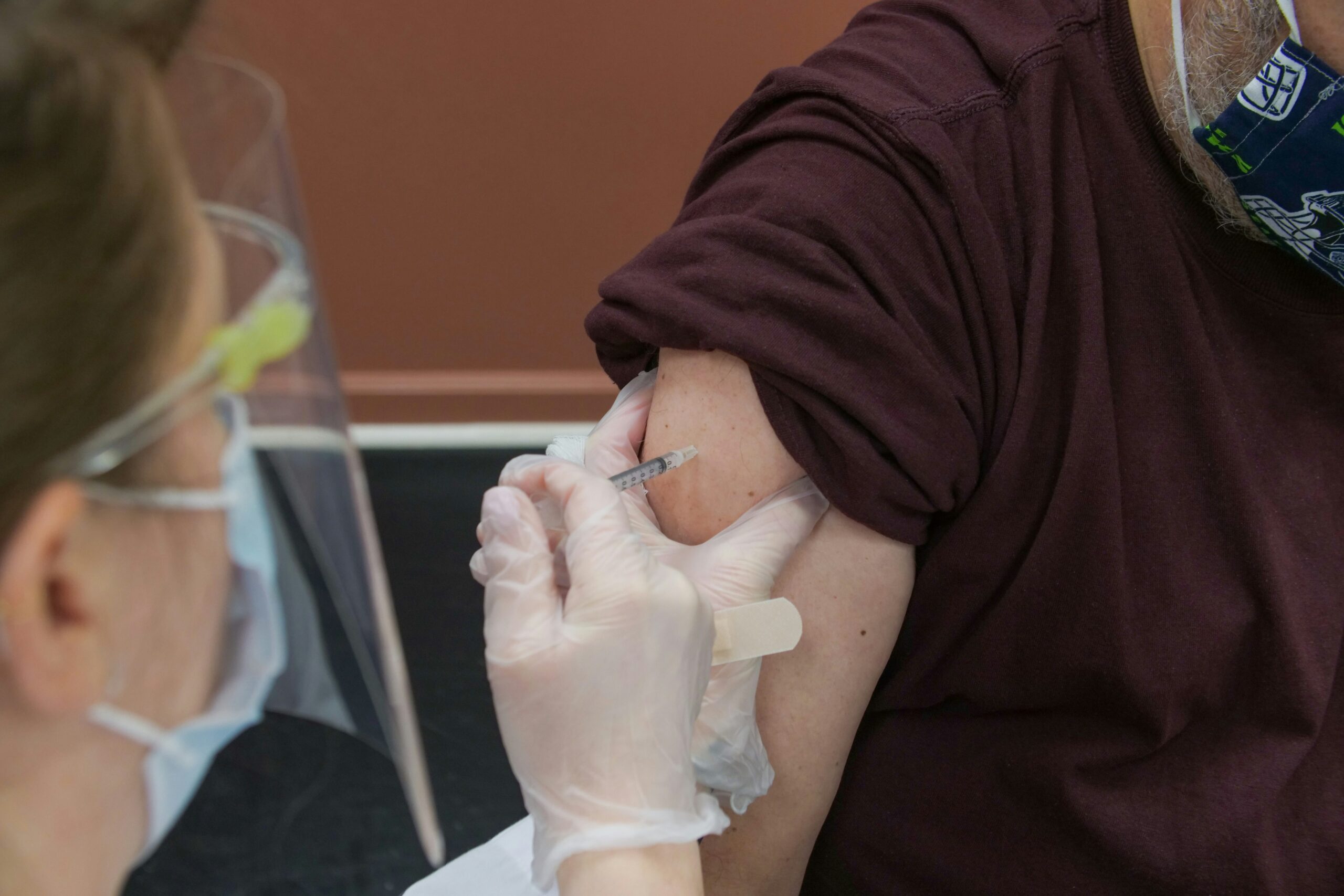Detoxing from alcohol or drugs can be a difficult experience. The symptoms of withdrawal may be mild to severe, depending on the substance, a person’s general health, and the severity of their physical and psychological dependence. Some people wonder if detox teas can make the process easier.
The popularity of “cleansing” toxins from the body has brought more attention to products like detox teas and natural supplements, but do these options really work? Here’s what you need to know about detox teas — and what the most effective ways to approach detoxification may be.
Understanding Detoxification
“Detox” means to rid the body of toxins. When referring to general health, people may try detoxification programs to help them lose weight, increase their energy, or feel better overall. The theory is that consuming certain foods or special liquids helps the system rid itself of unwanted elements that negatively affect health.
People entering an addiction treatment program experience a different type of detoxification. Detoxing, in this case, is part of substance withdrawal, which is the physical, emotional, and psychological process that happens when an individual stops consuming or consumes less of a substance they’ve become addicted to.
When the body and mind have become dependent on a substance to function, the system is thrown out of balance. With prolonged use, drugs and alcohol change how the brain functions, including its ability to produce the chemicals and hormones that are essential to maintaining health.
Removing that substance is beneficial in the long run, but it can take a long time for the body to readjust and begin working again. Benzodiazepines, for example, can take weeks or months to withdraw from, while withdrawing from substances like alcohol can be accompanied by long-lasting illnesses.
The type and severity of withdrawal symptoms vary for each person and can depend on the types of substances they have been using as well as the length and severity of their addiction. Some symptoms, such as seizures or delirium, can be deadly.
What Are Detox Teas?
Detox teas may or may not contain any type of tea leaf and can be made from a number of different ingredients. Many are a combination of teas, herbs, and juice concentrates that are purported to have certain health benefits.
In the past, some brands were found to contain medications like serotonin and norepinephrine reuptake inhibitors (SSRIs).
These products may also include ingredients like grapefruit that can cause dangerous interactions with certain medications. Some common detox tea brands include:
- Traditional Medicinals
- Total Tea
- Yogi DeTox Tea
- Numi Tea
- Pukka Detox Tea
- BaeTea
How Detox Teas Affect the Body
There are two main types of detox teas. One type is generally sold as a weight-loss aid and contains ingredients like caffeine that boost energy. The other is for “cleansing” the body of toxins. This type is sometimes used by people who want to flush drug residue from their bodies quickly so that they can pass a drug test.
Both types typically contain a diuretic to increase urination and flush the kidneys. Some of the ingredients may have beneficial properties, but there is little research to support that detox products are effective or safe. Such products are also often not regulated by the FDA.
Though rare, some ingredients like green tea can cause liver damage. Overhydrating by drinking too much detox tea is another danger, potentially leading to an electrolyte imbalance.
Drinking more liquids of any kind can aid initial weight loss. The extra fluids cause more urination, which may help release some water weight, and drinking more helps you feel full and take in fewer calories. However, these benefits are usually short-lived.
While they are marketed as healthful products, detox teas can be dangerous. It is important to read the ingredient list carefully and consult with your doctor before using a detox tea for any reason.
Beneficial Ingredients in Detox Teas
Detox teas aren’t a cure for withdrawal symptoms and must be used with caution, but some of the ingredients in popular detox teas do offer health benefits. Keep in mind that no tea or other natural supplement provides miracle results.
Tea Leaves
Both black and green tea have been found to have health benefits, including:
- Cancer prevention
- Gut health
- Anti-inflammatory treatment
- Protection against heart disease
- Cholesterol reduction
The antioxidant called catechin is often credited for most of the health benefits in tea. Catechin helps protect against cell damage caused by free radicals.
Dandelion Root
It may be a pest in the garden, but all parts of the dandelion can be used in natural healing remedies. Many detox teas contain dandelion root for its ability to support liver function. There are several studies on the benefits of dandelion, and one study found that the polysaccharides in dandelion may promote liver health.
Ginger Root
The same ginger that’s used in cooking is also used in detox teas. Detox patients suffering from nausea might benefit from drinking tea made from ginger root. It has been found effective for reducing nausea and improving brain function.
Burdock Root
Burdock is another plant considered a weed that may provide health benefits. The root of the burdock plant has been used as a weight-loss aid and as a supplement for lowering blood sugar levels.
Patients withdrawing from methamphetamines, fentanyl, and other substances known to cause skin problems could benefit from a tea containing burdock root. One study found it protects against skin infections and promotes healing.
Drugs, Alcohol, and Detox Teas
Perhaps the main concern about using detox teas for drug and alcohol withdrawal is that these substances aren’t FDA-regulated, and self-medicating can come with risks. For example, ingredients like caffeine and ephedrine can cause heart damage. While a dangerous risk for anyone, people who are addicted to stimulants like cocaine and methamphetamine already have a higher risk of heart damage.
Many detox teas contain a diuretic ingredient to increase urination. But essential vitamins and minerals are also eliminated during urination. Losing too many of these important nutrients could worsen the symptoms of detox.
Senna, an effective herbal laxative, is also in many detox teas. Too much senna can cause diarrhea and vomiting, which could lead to dehydration. All of these complications could make the detox process worse, not better.
Lastly, there’s no guarantee that a detox tea will work in time to help relieve withdrawal symptoms. Depending on the ingredients and frequency of use, it could take several days to realize any benefits. The most severe withdrawal symptoms typically appear within the first 72 hours after stoppage.
If you do choose to use a detox tea to help with withdrawal symptoms, proceed with caution. Read the ingredients carefully, and do not exceed dosage recommendations. If symptoms worsen, contact your health provider immediately. Call 911 if you experience the warning signs of a stroke or heart attack or if you have a seizure.
Scientifically Proven Methods for Detox
Alternatively, there are evidence-based methods of detox that are safe and effective. Medically supervised detox, medical-assisted treatment (MAT), and some lifestyle behaviors can ease symptoms and help people avoid relapse during withdrawal.
Medical Detox
The goal of medical detox is to reduce withdrawal symptoms and keep patients safe as they prepare for the next step in addiction recovery. Medical professionals provide targeted treatments such as medications and psychotherapy to manage symptoms.
Medical detox begins with a thorough health evaluation. This empowers a patient’s medical team to diagnose co-occurring conditions that could threaten a patient’s well-being. The team uses methods that have been scientifically researched and shown to reduce withdrawal symptoms and improve a patient’s comfort level.
Feeling better faster may also help recovery clients be more receptive to the therapies designed to help them maintain recovery.
MAT
MAT is often used in the treatment of opioid addiction cases, such as fentanyl use disorder. MAT has been researched and approved by many leading medical organizations, including the Substance Abuse and Mental Health Services Administration (SAMHSA).
This method uses a combination of medications, such as methadone, buprenorphine, and naltrexone, to reduce the intense cravings experienced by people with opioid addiction disorder. MAT is often accompanied by behavioral therapies and has been proven effective in helping people avoid relapse and stay active in their recovery programs.
Exercise
Exercise alone is not enough to treat withdrawal symptoms, especially for people with severe and prolonged addiction issues. However, it can help alleviate detox symptoms by naturally producing endorphins — the “feel good” chemicals that produce euphoric feelings associated with substance use.
One study on exercise also suggests that regular exercise may help people maintain abstinence after treatment.
A Healthy Diet
Many people who enter drug and alcohol treatment programs are suffering the effects of poor nutrition. Eating a well-balanced diet is not only essential to their overall health, but certain foods may also help with detox.
For example, fruits like grapes, blueberries, and cranberries can support liver health, while foods like leafy greens that are high in magnesium may help relieve headaches.
Sleep
The restorative power of sleep during detox can’t be overlooked. One study suggests the brain flushes out toxins faster during sleep. Sleep disturbances are natural during withdrawal. Some people have difficulty sleeping, while others want to sleep too much. Practicing good sleep hygiene during detox may help reduce symptoms and shorten the withdrawal process.
Are Detox Teas Worth the Effort?
Under certain conditions, detox teas may be helpful as part of a comprehensive detox program, but depending on them to alleviate the discomfort of withdrawal is not the best approach. Some teas include dangerous ingredients that might interact with medications. Detoxing without medical supervision can put your health and even your life at risk because some detox symptoms can be fatal.
Some common ingredients in detox teas may provide health benefits, but it can take many months of regular use to realize those benefits. They don’t work quickly enough to help someone with detox, which usually lasts only a few days or weeks.
If you or someone you care about is considering enrolling in an addiction treatment program, it’s important to choose a program that offers a medically supervised detox program. Medical supervision can help ensure that each person is as safe and as comfortable as possible during the detox process.
A more pleasant detox experience can lead to faster and more complete participation in the other therapies that can help you regain your life and leave addiction behind for good.




